A fertility app enables a woman to determine with a high degree of accuracy when she is most likely to conceive.
A fertility app can also be used as a form of birth control that informs women when they are at their least fertile. The data gleaned from a fertility app in this regard is considered more dependable than the traditional rhythm method.
Fertility apps embrace many different approaches, but they all have the same ultimate goal: to provide you accurate, useful information about your reproductive system. The following are the best fertility apps, updated for 2023.
Rankings
1. Flo Period Tracker

While Flo Period Tracker is not exactly free, it is reasonably priced, highly accurate, and feature-rich. The interface is clean and appealing, input is simple and intuitive, and there are lots of articles on topics of interest to most users.
What we like: You can track an array of biomarkers including menstrual flow, basal body temperature, PMS symptoms, and more. It uses an advanced machine learning system to provide you with highly accurate predictions for your period and ovulation date.
Flaws: Some of the questions and categories are pretty invasive. It does not always play nice with other apps.
2. Clue
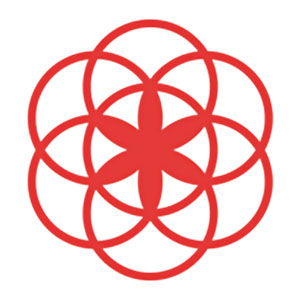
Clue is one of the few fertility apps out there that is crystal clear about what happens to your data. They give you the choice of keeping it in-house on your phone, or making it available for research purposes.
What we like: We give Clue high marks for its logical and compelling design. Just about every metric you can imagine is accounted for. And the Clue community is one of the more helpful and supportive.
Flaws: Not always precise in predicting ovulation. Also, if your iPhone is more than a year or two old, it may not work.
3. Natural Cycles
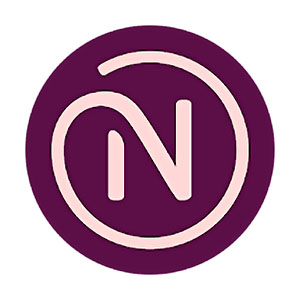
Like a fertility app, the Natural Cycles birth control app shows you when you are at your most and least fertile. Natural Cycles was developed by a particle physicist to be a more dependable alternative to the rhythm method.
What we like: The app takes a no-nonsense analytical approach many find refreshing. It is well-designed, easy to understand, and assumes you are an adult. It is not the cheapest fertility app around, but it earns its money.
Flaws: Free demo with limited functionality is available for a month. After that, it gets expensive.
4. Fertility Friend
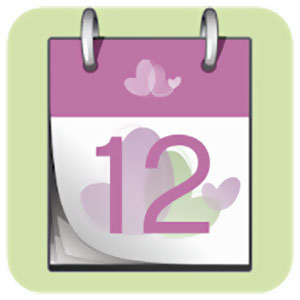
If you are into charts and graphs, you are going to love Fertility Friend. This is a data-driven app that uses serious analytics to determine when you are ready to conceive, and when you are not. It also allows you to keep all your data private.
What we like: We appreciate the emphasis on science and facts, and that the app can be secured behind a passcode. The app is very well-organized and easy to navigate. And the option to store all your data on your phone is a big plus.
Flaws: Charts and graphs seem like they are designed for electrical engineers.
5. Glow Ovulation & Period Tracker
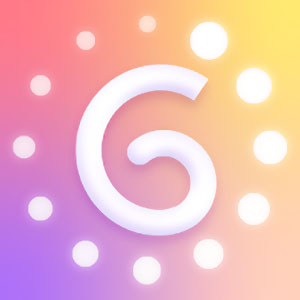
Glow earns a lot of praise for its well-considered design and ease of use. The app uses a proprietary algorithm to determine your precise ovulation date so you have the best possible chance to conceive.
What we like: Glow offers an attractive interface with intuitive navigation. You can track more than 40 health and lifestyle metrics. There is an extensive FAQ section and lots of helpful articles. And it is reasonably affordable.
Flaws: Their ‘recommendations from trusted community experts’ is where they try and sell you stuff.
6. Kindara: Fertility Tracker
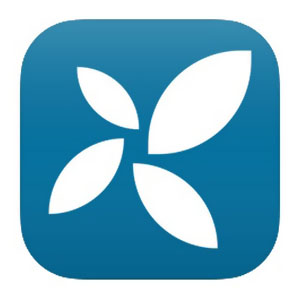
Kindara enables you to track just about every conceivable reproduction-related metric. The app gets high marks for its ability to sync with Apple Health, and for its emphasis on data-driven results.
What we like: The clean, logical design is a big plus. As is the inclusion of a wireless basal body thermometer. Being able to sync with Apple Health puts your data in a more holistic context. And the Kindara community is one of the largest.
Flaws: They have an unfortunate tendency to promote in-app purchases at every turn.
7. Period Tracker by GP Apps
![]()
The Period Tracker does not reinvent the wheel or utilize breakthrough AI. What it does do is allow you a simple, effective way to track a variety of reproductive metrics so you can determine with a high degree of accuracy when you are most likely to conceive.
What we like: We appreciate the ability to back up data online. The app keeps the focus on your fertility window instead of in-app purchases. And the ability to use Apple’s Touch ID (fingerprint) security system will appeal to a lot of women.
Flaws: Anytime you store information online, you run the risk of privacy issues. Read the fine print on the privacy policy.
8. SevenLogics Period Tracker
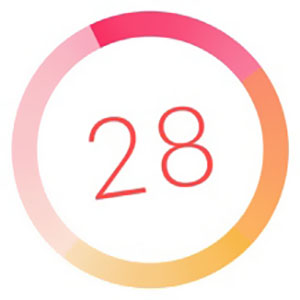
There are apps that track a larger number of biomarkers. And fertility apps that have more attractive interfaces. But there are not a lot that make it easier to keep track of the goings-on of your reproductive system then SevenLogics Period Tracker.
What we like: SevenLogics can be synced with Apple Health to provide more insight into your overall physical state. The Touch ID security ensures your private information is locked away from prying eyes. The graphs are easy to interpret.
Flaws: The backgrounds are more distraction than anything else.
9. Leap Fertility Tracker
![]()
Leap Fertility Tracker is a deceptively simple fertility app that employs the power of machine learning to determine when you are likely to be most fertile. The design is very engaging, and the company puts a premium on protecting your privacy.
What we like: Leap Fertility gets high marks for protecting your private information from the likes of Facebook. Their app is well-designed, easy to understand, and easy to use. It also allows you to account for things like irregular periods.
Flaws: May take a bit longer than some other fertility apps to get the hang of.
10. Ovia Fertility & Cycle Tracker
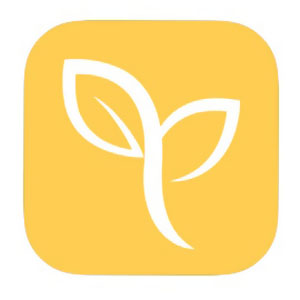
Ovia produces several symbiotic pre-pregnancy apps designed to do two things: provide women with reliable information they can use to make reproductive choices, and sell them stuff via in-app purchases.
What we like: The app itself is well-organized, easy to use, and reliable. It provides you access to thousands of expert articles. And it offers lots of helpful tips that enable you to get more from your experience.
Flaws: Does some very questionable things with the data it collects.
Who Needs A Fertility App?
Any woman wanting to get a clearer picture of her reproductive possibilities should consider using a fertility app. They can help you make sense of why you may be having difficulty conceiving, and they can provide useful information that will enable you to increase your odds of getting pregnant.
Fertility apps are also commonly used by women who do not wish to get pregnant. That is because they not only tell you when you are likely to be at your most fertile. They also tell you when you are at your least fertile.
But beyond reproductive considerations, a fertility app can be useful for any woman who wants to better understand her body, how it works, and why it sometimes behaves the way it does. The app can remove a lot of the mystery, answer a lot of your questions, and provide you with a much clearer picture of who you are.
How We Ranked
One woman’s amazing fertility app is another woman’s dud. That’s because some women are data fiends, and others prefer a more intuitive approach. So assessing the relative value of fertility apps is an inexact science. But here are some of the things we looked for.
A woman’s fertility is based on more than just the day of her cycle, so we gave high marks to apps that enabled the user to enter a variety of different types of data. We also gave extra points to those that allowed a certain amount of customization. Because, as science has shown, not everyone ovulates on day 14, and not everyone’s cycle is predictable as the sunrise.
We were also on the lookout for apps that send conflicting messages. For instance, some apps will encourage you to record basal body temperatures and even track the quality of your cervical mucus. Yet, at the same time, they rely on the calendar method to determine your fertility window. So, what is the point of tracking all those advanced biomarkers?
We also considered the social aspect of the various apps we researched. Did they provide access to other users? Were interactions between users typically respectful and helpful? Or were they merely complaint festivals? And finally, we considered the financial aspect. If an app was free, did it provide useful functionality? If an app was ‘free with in-app purchases’ was the user constantly pressured to buy things? If an app was only available via subscription, was it worth the investment?
FAQs
Q: What is a fertility app?
A: A fertility app is a smartphone application that takes information entered by the user to determine when that user will be at her most fertile.
Q: How does a fertility app work?
A: A fertility app depends entirely on you to feed it accurate information. So the answer to how a fertility app works is that it doesn’t: you do. You have to spend the time gathering relevant information and feeding it into the app. And you have to show up for work every day. The app then takes the data you entered, applies a certain calculus to it, and produces a result. The more diligent your data collection efforts, the more accurate the result.
Q: Why should I use a fertility app?
A: Many women have been told that ovulation always occurs on day 14 of their cycle. We now know this is not the case (1). As such, if you wish to get pregnant (or avoid getting pregnant), it is important to try and determine precisely when you are most (or least) fertile. A fertility app, with its ability to apply sophisticated algorithms to a range of physiological, environmental, dietary, and personal data, can help you do that.
Q: Is a fertility app a reliable form of contraception?
A: Many women use their fertility app not only to determine when they are most fertile, but to determine when they are least fertile as well. The problem is, if the data you are gathering and entering into the app is not comprehensive and rigorously accurate, the app may draw an erroneous conclusion. As a result, you may end up pregnant when you do not want to be. The app simply processes the data you give it. So faulty data will equal a faulty conclusion.
Q: Can a fertility app really predict my ovulation date?
A: The modern fertility app uses your body’s own signals to determine your optimal period of fertility. That is typically a couple of days prior to, and following, ovulation (2). The app is not actually predicting your ovulation date. It is merely taking the data you enter and presenting you with a date based on what that data suggests. If the data you enter is flawed or sporadic, then the ovulation date the app presents you with may well be wrong.
Q: Are there different kinds of fertility apps?
A: There are numerous kinds of fertility apps on the market today. They include everything from ultra-simple digital notebooks to apps that use artificial intelligence and machine learning (3) to predict when a woman will be at her most fertile. Some are heavy on the charts and graphs, others place more emphasis on community support and tracking a few essential metrics.
Q: Why does the app keep changing my fertility window?
A: As a general rule, the longer you use a fertility app the more information the algorithms in the app will have to determine your fertile window. More information gleaned over a longer period of time is likely to cause a modest change in this predicted window. These fluctuations will likely stabilize. But if your fertility window continues to change, you may want to try another app or talk to your doctor, or both.
Q: What is basal body temperature?
A: As we sleep our body’s cool down (4). As a result, our body temperature is usually at its lowest shortly before we wake up. This is called the ‘basal body temperature’. The basal body temperature is considered a fairly reliable indicator that ovulation is underway. It is crucial that you take this reading at the same time every day and that the method used to obtain the reading (oral, rectal, or vaginal) is also consistent.
Q: Can I use a regular thermometer to take my basal body temperature?
A: You can, but the reading you get may not be as accurate as it would be if you bought a special basal body thermometer. When tracking your basal body temperature, the temperature fluctuations you are looking for typically occur in increments of tenths of degrees. Old fashioned standard thermometers will not provide that type of accuracy. Although some of the new digital ones will.
Q: Do I really have to monitor cervical mucus?
A: The more reproductive metrics you track, the better, more reliable picture you will have regarding your reproductive status. It is really that simple. So, no, you do not have to monitor the state of your cervical mucus. But if you want the fertility app to work as intended, then it is advised that you provide it as much information as possible.
Q: When is the best time to have sex to ensure conception?
A: There is no way to absolutely ensure conception will take place. But to give yourself the best chance, you should plan to have sex during the three days leading up to ovulation and the day following ovulation. While it is possible to get pregnant outside of this window (5), the odds become increasingly remote the further you move away from it.
Q: What does FAM stand for?
A: When looking into fertility apps you will see the letters ‘FAM’ everywhere. FAM stands for ‘fertility awareness method’, and it is nothing to be concerned about. It is just a fancier name for fertility apps.
Q: How can I chart basal body temperature?
A: Most fertility apps will want you to chart your basal body temperature for clues that ovulation is about to occur. To do this, you will need to take your temperature at the same time (in the morning right after waking) and in the same manner (oral, vaginal, or rectal) every day. Also, it is important that you have at least five hours of continuous sleep before taking your BBT. Once you have taken your temperature, simply enter it into the app.
Q: Is fertility the only thing that influences basal body temperature?
A: It is important to understand that numerous things besides fertility can potentially affect your basal body temperature. Stress, illness, alcohol consumption, not enough sleep, certain meds, and more can cause it to rise or fall. If your basal body temperature reading is fluctuating in a seemingly random way, you may want to pay a visit to your doctor to be sure everything is okay.
Q: Are fertility apps always accurate?
A: Many of today’s best fertility apps are highly accurate. But, remember, these are still machines. As such, any conclusions they draw are based solely on the data you enter. So if, for instance, you forget to take your basal body temperature for a few days, and simply enter randomly selected numbers instead, the fertility app is going to draw conclusions that may not be accurate. But that is the fault of the questionable data, not the app itself.
Q: Does a fertility app keep my personal information private?
A: Considering some of the super-intimate questions these apps ask, it is important to know who is protecting your privacy and who is not. An app like Clue allows you to store all data on your phone. Or you can choose to share it with medical researchers. Not all developers are so altruistically inclined, however. So if you note that you had unprotected sex and suddenly start to see ads for condoms, that should tell you something.
Q: How much do fertility apps cost?
A: There are a few fertility apps available free of charge. Some are free to download, but then require you to subscribe before you can activate the app. In other cases, you will be allowed to try the app for free before deciding if you want to purchase it. But the free trial version will typically have limited functionality. Those that say ‘free with in-app purchases’ (6) may require you to pay for their most desirable features.
Q: Do the app makers guarantee I will conceive?
A: There is no way for an app maker or anyone else to guarantee you will conceive. There are just too many variables involved in the process of conception. What a fertility app will do is help you understand how your body works, so that you can give yourself the best chance of conceiving.
Q: What can I do to increase my odds of conceiving?
A: There are several things you can do in addition to using a fertility app to increase your chances of conceiving. You should make sure you are in the best physical shape possible. If you are fond of smoking and having a few drinks, you should stop. If you are taking any prescription meds, you should ask your doctor if they are likely to interfere with conception (7). And it would not hurt to start taking a multivitamin every day.
Q: Are there other ways to track fertility besides an app?
A: You can always revert to pen and paper. However, that can be a very labor-intensive process. Not only that, but you will likely have a hard time trying to make sense of all the information yourself. Even if you bring your notebook to your doctor, they may not have time to sift through everything you have written, looking for clues about your reproductive health. A fertility app can save you time, effort, and money.
Related Articles
Recap
A fertility app enables you to determine precisely when you are most fertile so that you have the best possible chance to conceive. Today’s fertility apps use AI, machine learning and state of the art algorithms to turn your observations into useful information.
Fertility apps can also help you avoid getting pregnant by letting you know when you are at your least fertile. And they can provide important clues that you may help you identify other health issues before they grow into serious problems.
Fertility apps also provide you access to large communities of other women with whom you can share your experiences. Many consider this social component as important as the ability of the various apps to analyze data.
For cpoe.org’s #1 recommended fertility app, click here.

